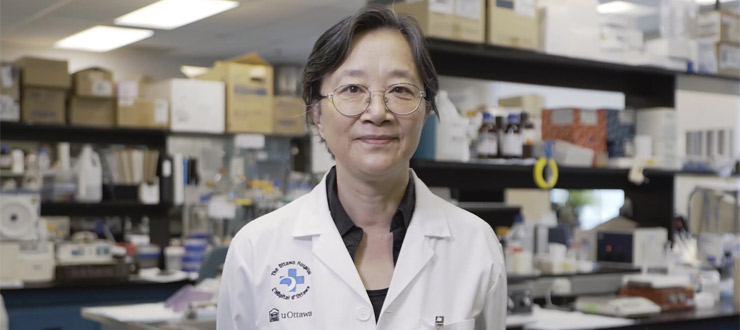
Dr. Xiaohui Zha gained a new appreciation for life while recovering from a stroke. “I realized that if you want to make a difference in the world or in science, you need to do it today, because there might not be a tomorrow.”
Dr. Xiaohui Zha was listening to one of her students present at an international research conference in 2015 when she suddenly lost hearing in one ear, and then the other. Although she didn’t know it at the time, blood was leaking into her brain from a burst blood vessel. She didn’t want to disrupt the presentation, so she quietly walked out of the room before collapsing on the floor.
Dr. Zha, a senior scientist at The Ottawa Hospital and associate professor at the University of Ottawa, later learned that she had suffered a severe kind of stroke, caused by a brain aneurism. Many people don’t survive this kind of stroke, and those who do often have major long-term disabilities.
Dr. Zha was lucky.
“I’ve never accepted defeat all my life, not easily,” she said. “So I knew when I first woke up that I was going to make it, even though the only thing I could move was my eye.”
Dr. Zha’s research success, which earned her the Chrétien Researcher of the Year Award at The Ottawa Hospital Gala on Oct. 28, was spurred on by her illness.
In the early days of her recovery, some people asked if she would retire early, but she refused to consider it.
“Sickness is very depressing and recovery, when slow, is even more so,” she said. “What pulls you up is the excitement, be it your work, your hobby, your dog or your kids. Luckily, I have always enormously enjoyed science and loved my work. This became my powerful crutch to recovery.”
Dr. Zha gradually began to work from home and Skyped into her lab daily, but it was more than a year before she could return full-time. When she did, her colleagues said, it was “full speed ahead.”
In the short time since then, Dr. Zha and her team have published several groundbreaking studies in cholesterol research and two of her students successfully defended their PhD theses.
Her team’s biggest discovery involved a protein called mTORC1. They found that this protein can trick our cells into making excess cholesterol and fat even when they don’t need to. People with obesity and diabetes often have overactive mTORC1, so targeting this protein could lead to new treatments for these diseases and related cardiovascular conditions.
This was judged to be the top research paper of more than 1,300 published in the last year by scientists at The Ottawa Hospital, netting Dr. Zha the coveted Chrétien Researcher of the Year Award.
Dr. Zha credits her success to her “loyal and dedicated” students and postdoctoral fellows, as well as her supportive colleagues. But her illness may have also provided some extra motivation.
“I gained a new appreciation for life,” she said. “I realized that if you want to make a difference in the world or in science, you need to do it today, because there might not be a tomorrow. I also got to see the impact of cutting-edge research on my own treatment, and this has inspired me to work even harder.”
Dr. Zha’s research is supported by generous donations to The Ottawa Hospital. She is also supported by the Canadian Institutes of Health Research and the Natural Sciences and Engineering Research Council of Canada.

Support patient care and research at
The Ottawa Hospital
You might also like…
New Research Chair in Gay Men’s Health is setting out to break down barriers to care
As both a researcher and a gay man, Dr. Paul MacPherson knows all too well the stigma that gay men often face in the health-care system. Now, as the Clinical Research Chair in Gay Men’s Health at The Ottawa Hospital and the University of Ottawa, he’s on a mission to make quality health care more accessible to this often overlooked patient population.
Made-in-Ottawa tool helps decide when critically ill patients can breathe on their own
Over the past two years of the pandemic, more Canadians than ever have required mechanical ventilation to help them breathe. The Ottawa Hospital is the first hospital in the world to evaluate an innovative medical device that uses artificial intelligence to predict when critically ill patients are ready to breathe on their own.
Dream vacation becomes nightmare after COVID-19 strikes
Sun and sand turned to fear and uncertainty when Jim and Joanne Booth, married for 57 years, tested positive for COVID-19 in March 2020. Read about their journey back home to receive life-saving care at The Ottawa Hospital.
Giving every COVID-19 patient the chance to participate in research
Since the beginning of the pandemic, Irene and Rebecca have been on the front lines explaining all the available clinical trials to these patients and their families, often during those first difficult days of hospitalization.
Patient gets life-changing diagnosis thanks to Open Science
For years, doctors thought Jenna Keindel had limb-girdle muscular dystrophy, even though they couldn’t find the exact gene that was causing the disease. This all changed when Jenna read a research article about an autoimmune disorder that mimicked muscular dystrophy – sending her life, and diagnosis, on an entirely new path.
COVID-19 timeline: A year in review
When COVID-19 first arrived in Ottawa, The Ottawa Hospital was ready to respond. Explore the COVID-19 timeline to learn how care teams, researchers and the community have come together over the past year.


 To reset, hold the Ctrl key, then press 0.
To reset, hold the Ctrl key, then press 0.
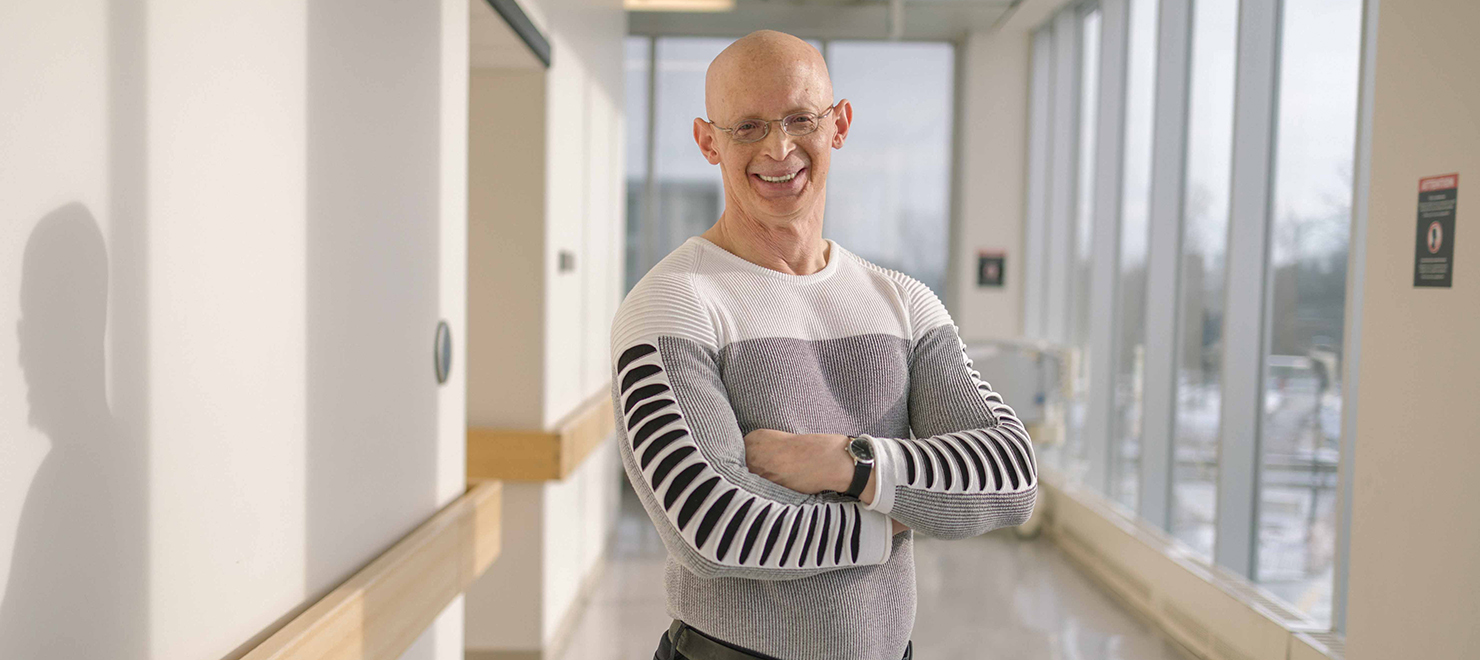
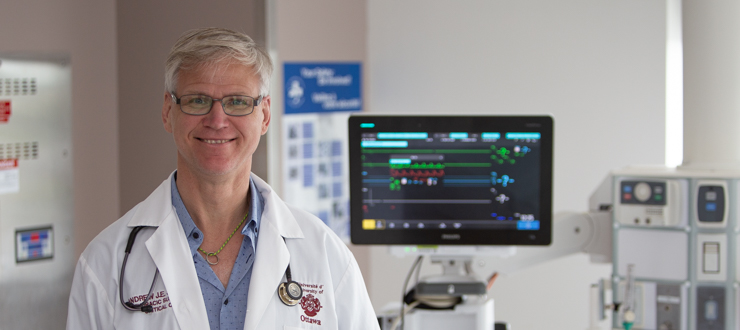

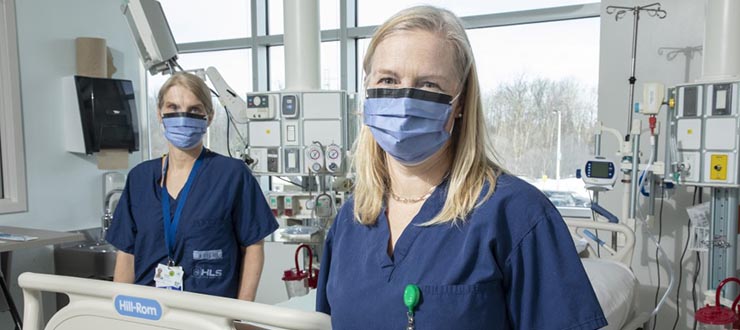
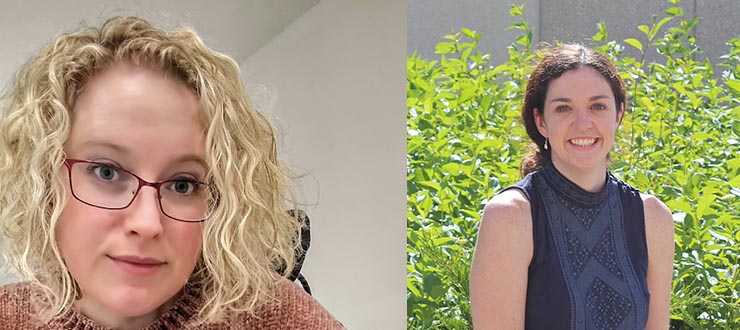
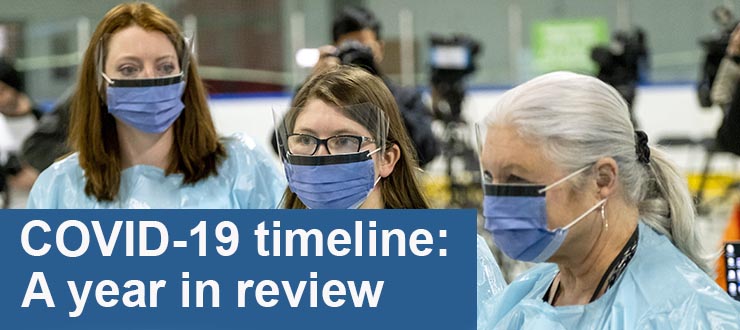
Comment on this post